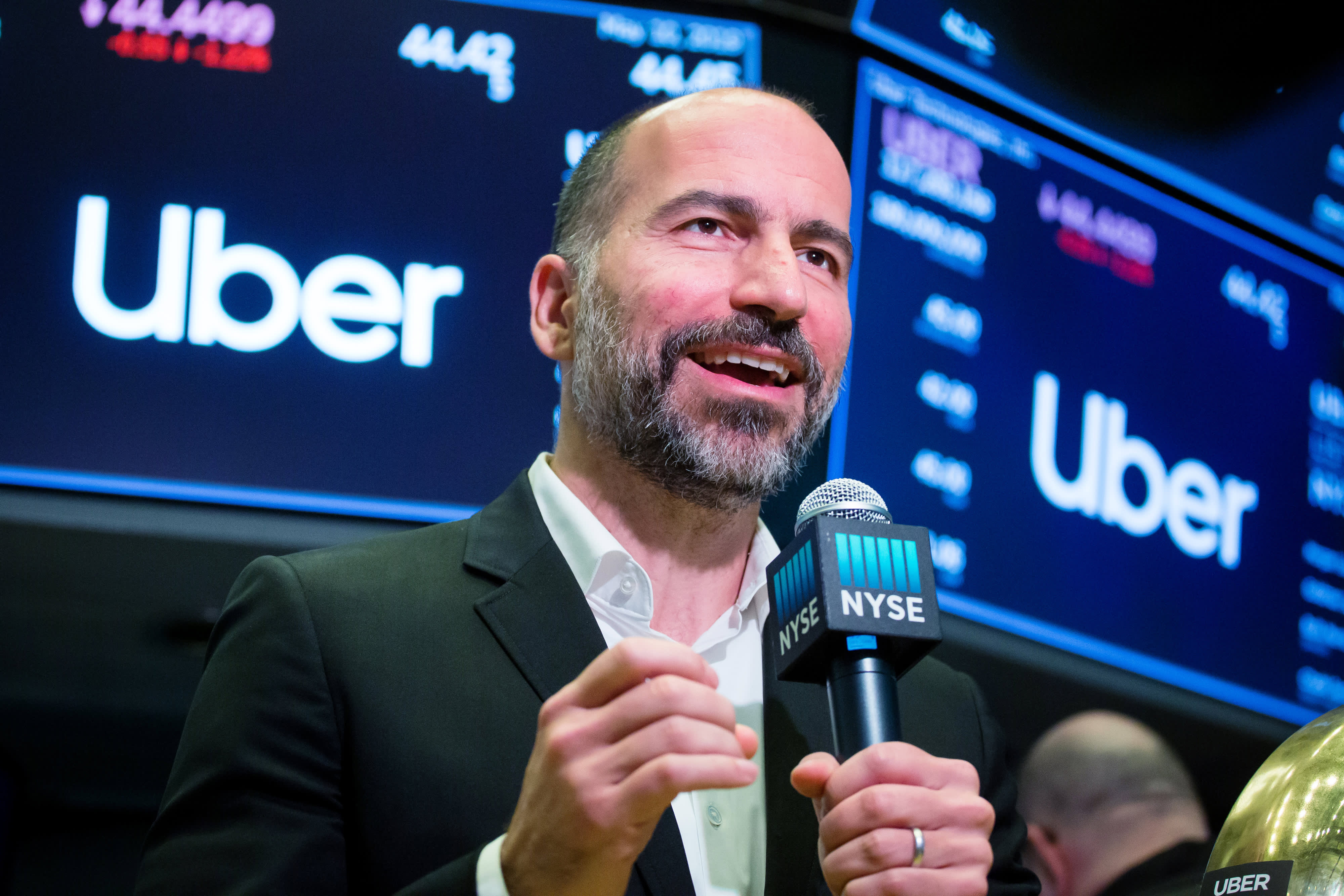I came across this in my Instagram feed yesterday and I had two thoughts…
The first thing is, awww man, I love Shark Tank. My kids do too. Why does this dude have to be doing this?
And then I thought about how if a regulated investment company or advisor had posted this ad, it would violate like every securities advertising rule on the books. I don’t know what happens when you click on it, because I didn’t want to have to wash my phone out with vinegar or throw it in the ocean after visiting whatever URL was at the end of this ass-rainbow.
By the way, you could not have invested $50 into Uber ten years ago because the company was raising money from venture capital funds. They weren’t collecting $20 bills in the back of a bowling alley like it’s a Super Bowl pool, but I digress…
I think the bigger takeaway is that everything changed this spring after Uber’s failed IPO. The company immediately garnered a valuation north of $80 billion and then it fell like a stone. This experiment – bringing a company public at a massive valuation that stated in its S-1 filing that there was a chance they’d never earn a profit – produced a mass sentiment shift among savvy investors and retail buyers alike. It was a time’s up moment.
I think had Uber successfully listed and held onto a premium, WeWork would have had no problem. Everyone would have looked past the excesses in its filing, the voraciousness of the founder’s side dealings and the absurdity of all the flowery language. They would have said “Get with the program, these are the companies that are taking over the world!” In the shadow of Uber and Lyft, however, the spirit of this sort of thing faded away and IPO buyers got religion.
AirBnB is the next big unicorn to come out. Unlike Uber and WeWork, they actually have a path toward sustained profitability. The numbers aren’t Disneyland nonsense. The management is serious about running the company. They’re not gouging their shareholders or playing Catch Me If You Can with their board of directors. Depending on where it attempts to open at, I think it’ll be okay.
But then what?
Are there enough idiots left for the rest of the big cash-bleeding private tech darlings to debut? I’m not sure. One thing I can tell you is there’s going to be a lot more scrutiny and questions being asked. Scrutiny and questions don’t lend themselves to IPO bonanzas. They kind of ruin the party, like when a guest figures out the wifi code, commandeers the Sonos and starts playing Springsteen songs.
The Vision Fund – Softbank’s vanity project that has come to be emblematic of the Growth At Any Cost style of investing – may be permanently off the field of play; the Antonio Brown of venture investing. In the short-term, this presents a challenge because there is no longer a huge player setting prices at whatever number gets the deals done. Real VCs will benefit from its benching, though, because now they can invest in a more realistic environment. This could be promising for forward returns as the climate adjusts.
And don’t take this the wrong way, but when startups need money from Instagram scrollers, it’s probably not because they have amazing deals and prefer to bypass the smart money. It’s more likely because the smart money passed. There are exceptions, but I’m speaking generally. If one doesn’t speak generally about finance, it would be impossible to say anything meaningful at all, so bear with me. I respect the work being done by companies like Equity Zen, Angel List, etc to match capital with opportunity. I don’t think presenting fake hypotheticals like giving Uber fifty dollars ten years ago is a necessary marketing scheme.
If the WeWork collapse represents the moment the pendulum stopped swinging away from private market fantasies and back toward realism, I would argue that it’s a good thing for the investor class overall. It’s proof the system is still working. Valuations won’t be the only thing that come into focus. We’ll also revisit voting rights for regular shareholders (remember those?), profitability (or the potential thereof), governance, executive conflicts of interest and all sorts of other quaint stuff that had temporarily fallen out of fashion.
That pendulum’s starting to swing back, don’t forget to duck.
— Read The Reformed Broker post here.
